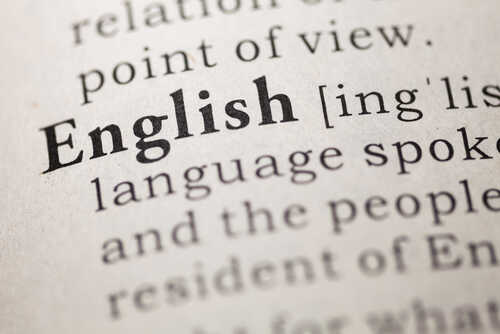
The Department of Housing and Urban Development’s (HUD) new English-only mandate marks a historic rollback of federal multilingual access, igniting widespread outrage among liberals.
Story Snapshot
- HUD is now requiring all services and communications to be exclusively in English, ending decades of multilingual access.
- This follows a March 2025 executive order by President Trump designating English as the official language of the United States.
- The policy revokes previous protections for Limited English Proficiency (LEP) individuals in federal programs.
- Millions of immigrant families and public housing authorities will be impacted.
Trump’s Executive Order: A Pledge Fulfilled for Official English
On March 1, 2025, President Donald Trump signed Executive Order 14224, making English the official language for all federal agencies.
This order, a signature promise from his 2024 campaign, immediately revoked Executive Order 13166, which had required agencies to provide meaningful access for individuals with limited English proficiency.
The Trump administration argues this move will restore common sense, promote national unity, and eliminate the bureaucratic burdens of translating vast amounts of government materials into dozens of languages.
For decades, the HUD played a central role in providing multilingual resources to millions of Americans, including many immigrants. As of August 2025, HUD began implementing the new English-only directive, ordering all staff to produce official communications and materials exclusively in English.
Non-English flyers and resources are being swiftly removed from government websites and public offices. This marks the first time a major federal agency has operated almost entirely in English, ending a policy era that began in 2000.
Immediate and Widespread Impacts on Housing Services
HUD’s English-only policy has triggered widespread confusion among property managers, public housing authorities, and millions of residents. Local agencies accustomed to providing translated materials are now left to navigate the abrupt loss of federal support for non-English speakers.
While HUD has promised detailed guidance in the coming weeks, current instructions advise agencies to maintain existing policies until further notice. The transition period exposes property owners to uncertainty and risk, as they await clarity on compliance and potential legal liability.
Short-term impacts are already being felt. Many LEP residents—often among the most vulnerable—now face new barriers to understanding critical housing information. This could disrupt access to housing assistance, tenant rights, and emergency services.
Legal analysts note that while the executive order removes the mandate for multilingual access, it does not explicitly forbid agencies from offering voluntary translations. However, the chilling effect is real: most agencies are expected to comply strictly, fearing penalties or loss of funding.
Constitutional and Cultural Debates: Unity or Overreach?
Supporters of the English-only policy argue that it is a much-needed return to constitutional values and American tradition. They believe that a single official language preserves national identity, streamlines government, and reduces unnecessary spending on translation and DEI initiatives.
For conservative Americans frustrated by years of “woke” overreach and government waste, this marks a decisive victory for common sense and constitutional order.
The Trump administration frames the policy as a unifying force, stating the goal is to “speak with one voice and one language” for greater clarity and efficiency.
Opponents, including civil rights and immigrant advocacy groups, warn that the policy could violate Title VI of the Civil Rights Act, which prohibits discrimination based on national origin.
Housing and legal experts predict that millions of LEP residents will face increased hardship, with reduced access to critical services and a heightened risk of housing insecurity.
Critics also argue that the policy may set a precedent for similar moves in other agencies, potentially rolling back decades of progress on language access and civil rights protections.
HUD launches English-only initiative for all department services: ‘Speak with one voice and one language’ #HUD #Language #JusticeDepartment #Immigrationhttps://t.co/5kYosm0Js0
— Jake Tyme (@Foundationalis) August 18, 2025
Economic consequences may include increased costs for local agencies forced to provide translations independently, as well as a reduction in HUD program participation among immigrant populations.
Socially, the policy could widen divisions and fuel political battles over immigration, language, and American values.
As the nation watches HUD’s rollout, the debate over official language, unity, and fairness is set to intensify—with both supporters and opponents mobilizing for the next chapter in the contest over America’s future.
Sources:
Executive Order Establishes English as Official U.S. Language – Impact on HUD Programs
HUD launches English-only initiative for all department services
This Department Is Making English Its Sole Language
HUD Launches English-Only Initiative for All Department Services
HUD 60-Day Extension FAQ, referencing Executive Order 14224



















